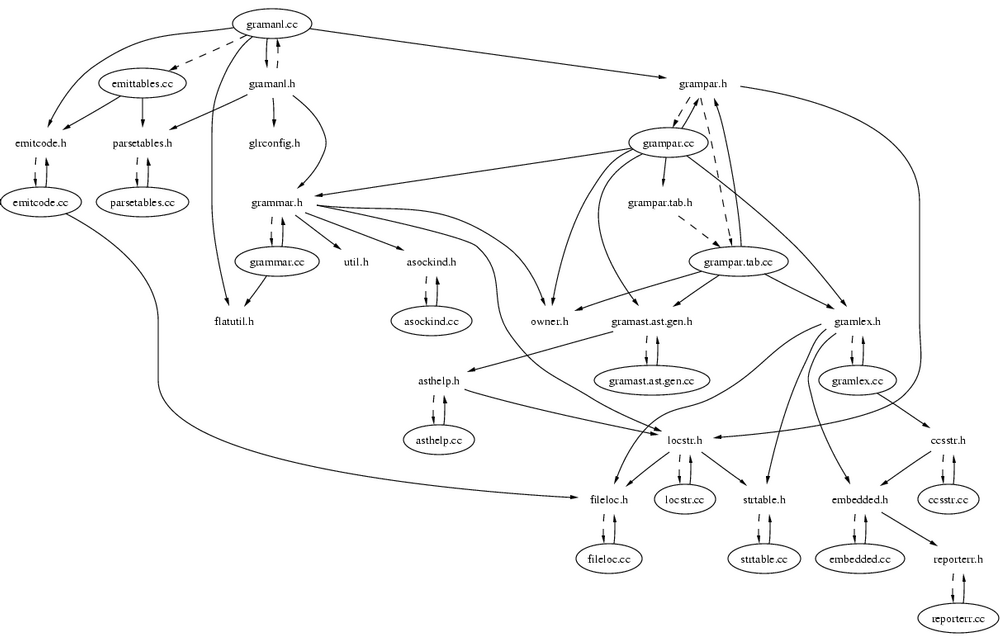
Or, in postscript: gramanl.ps
I wrote a little Perl script to scan a bunch of C/C++ source files and extract a graph of inter-module dependencies, both compile-time (e.g. #includes) and link-time.
The script: scan-depends.pl (alternate link for inline browsing). This script is still evolving, but the version here is quite usable.
Usage Information:
usage: ./scan-depends.pl [options] sourcefile [sourcefile ...]
This program reads each of the source files specified on the command
line, and emits a graph of their interdependencies in the Dot graph
file format. The source files should *not* be qualified with a path,
but instead be inside some directory specified with -I.
Options:
-I<dir> Add <dir> to the list of directories to search when
looking for #included files (files which are included
but not found are not printed as dependencies).
-X<name> Exclude module <name> from the graph. If a number is
-X<name>=n specified, at most that many incoming links will be shown.
-S<name> Do not process any outgoing edges from module <name>. This
is useful when <name> is the entry point to a subsystem
whose dependencies are charted separately.
-r Recursively follow dependencies for files encountered.
-q Suppress warnings.
-d Enable debug messages.
-h,-help Print this usage string.
The dependency graph is output in the Dot format. Dot is responsible for laying out the graph in a comprehensible way. Information on Dot (including sources to download) can be found at http://www.research.att.com/sw/tools/graphviz/.
Example output is below. Compile-time dependencies are shown as solid arrows, and link-time dependencies are dashed arrows. Modules are circled, and header files are uncircled.

Or, in postscript: gramanl.ps
A small sample of related work: